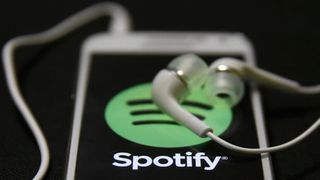Spotify reportedly coming to India in six months
The awaited launch might take place in first half of 2019

Spotify is reportedly gearing up for its entry into the Indian market within the next six months. According to a report by Variety magazine, Spotify's plan to buy a domestic competitor have failed to take off, so the Swedish music streaming service will be launching in India on its own.
The company has been eyeing the region for years; in March, just before its public listing, Spotify announced that it had opened a Mumbai office and hired 300 people. Employees working out of a space in Bandra Kurla Complex have been talking about a launch as little as six months in the future.
Pitfalls and growing pains
Spotify definitely has a battle on its hands: the company has been justifying its inflating operating costs with claims that an increased number of subscribers will lead to increased profits. But along with the news that it had reached 83 million paying customers in July, they also revealed that net losses for the second quarter had also roughly doubled to $461 million. That, along with plummeting stock prices and ferocious competition from some of the world’s richest companies, means that Spotify might need a near miracle in the near future to stay afloat.
India and China are two of the most lucrative markets for companies, but China’s internet laws and policies are so restrictive that even entering that market becomes a maze of sticky red tape and frustration. And India’s markets, while relatively liberal, are already dominated by local services like Gaana and Saavn (both of which were considered as potential acquisitions by Spotify), along with foreign services like Google Play Music, Apple Music, and Amazon.
Yet another obstacle: according to Variety magazine, insiders say that Spotify’s progress in the region might face impediments from major labels, who’ve threatened to block licenses in retaliation for the company’s efforts to bypass the record labels and license acts directly. However, other sources say that a pathway has been cleared, and Spotify cofounder and CEO Daniel Ek pooh-poohed reports of licensing problems during an earnings call in July, calling such issues ‘commonplace in this industry and nothing related to our overall strategy’, as reported by ETtech.
An extended free trial might delay concerns about a potentially slow conversion from free to premium subscription, but not indefinitely. Furthermore, there are linguistic challenges in marketing to a country with 1.33 billion people speaking nearly 20 languages (and over 300 dialects); there are also broadband problems- internet may be cheap in India, but access can be limited in many areas due to developing infrastructure.
Silver lining
The silver lining is that many of these challenges are not new to Spotify, as they faced challenges of similar type (if not size) in Indonesia and Africa. For its launch in the Middle East and Egypt, Algeria, and Morocco, the company will launch with a fully Arabic user experience, offering users both local as well as international music, and regionally-curated playlists. Furthermore, users in these countries can avail both free and paid subscription models.
Get daily insight, inspiration and deals in your inbox
Get the hottest deals available in your inbox plus news, reviews, opinion, analysis and more from the TechRadar team.
In an effort to boost falling stock prices, Spotify announced earlier this month that they plan to repurchase $1 billion worth of shares. As the world’s largest streaming service, Spotify has played a major role in rejuvenating the global music industry. But as investors begin to cool, the company now faces an enormous challenge to sustain itself and its growth.
Most Popular




